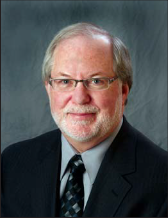 Indexed in Index Medicus and Medline
Indexed in Index Medicus and Medline
Free Articles
LEGENDS

Richard D. Williams, MD
October 7, 1944 - May 28, 2010
Iowa City, Iowa
Richard D. Williams, Rubin H. Flocks Professor and Chairman of the Department of Urology at the University of Iowa, passed away on May 28, 2010, after a tenacious fight with cancer. Dr. Williams, truly a legend in urology, had been writing his autobiography for this column just prior to his death.
Dr. Williams received his medical degree from the University of Kansas and completed his urology residency at the University of Minnesota, which is noted for graduating many of today’s leading urologists. His postgraduate exposure to the basic sciences came as a result of obtaining a prestigious National Kidney Foundation/American Urological Association (AUA) fellowship. Subsequently, after a very productive period as Chief of Urology at the San Francisco Veterans’ Affairs Medical Center and Chief of Urological Oncology at the University of California San Francisco, he went on to the University of Iowa where he served as chairman of the Department of Urology for over 25 years.
Dr. Williams had a lifelong commitment to education, research and service to the field of urology. He fulfilled numerous leadership positions at the national AUA, the North Central Section of the AUA, the American Board of Urology, the Residency Review Committee (RRC), the American College of Surgeons, the National Institutes of Health, and many other national organizations. One of his passions was volunteerism, and for many years he made frequent working trips to Hôpital Lumière, located in one of the most poorest places on earth Haiti. There, he not only organized urological care, but also arranged for supplies and equipment from pharmaceutical and device companies to provide much needed support for impoverished patients who could not afford health care otherwise. Among his many awards, he was the recipient of the 2005 International Volunteers in Urology Humanitarianism Award, a U.S. Department of Health and Human Services award in 2009 for his work in Haiti, and the 2009 Hugh Hampton Young Award from the AUA.
Yet the true contributions of Dr. Williams cannot be measured simply by the depth of his more than 200 publications, the diversity of his research activities, the outstanding clinical care that he provided to his patients, or the numerous awards that he received for academic achievement. Dick Williams genuinely cared! He cared about his students, his residents, his colleagues, his patients, and most importantly, he cared about the profession of urology. As Chair of the Urology RRC, his goal was to strengthen programs rather than eliminate them. I personally credit him with helping to salvage the faltering Syracuse urology residency program in 1995. It was insightful advice from Dr. Williams that led to appropriate steps being taken, which resulted in full accreditation for this program.
Dr. Williams was recognized as an advocate for resident research. He supported the inclusion of protected time for scholarly activities in training programs and maintained a very productive research program of his own at the University of Iowa. The Iowa residents were well recognized at section and national meetings for their excellent presentations and high caliber work--he set the bar for other programs to emulate. He fought tiredlesly to procure research funds and oportunities for residents and fellows when these monies became increasingly difficult to secure. He chaired study sections with dignity and efficiency, and he commanded respect based on his knowledge and research experience. He maintained the highest level of principles and ethical conduct in the investigative process and set a true example for generations of young urologists who followed in his footsteps and benefited from these efforts.
He was a highly coveted visiting professor, because of his charm, depth of knowledge of urology, terrific clinical insight, and ability to respond to the most challenging questions. Dr. Williams was respected and admired by residents and attending staff. He was dedicated to help his students and residents succeed, and he never failed to put in a good word or pick up the phone and personally recommend one of his students or residents for a prospective job or residency position. I observed him doing this on numerous occasions, and I know that many of our readers will also remember such instances.
Urology has lost a great leader and a loyal member with the passing of Dick Williams. Patients lost a highly competent and caring doctor, residents lost a dedicated teacher and an exemplary educator, and research lost a leading scientist and advocate. The loss to his friends, family and loved ones can not be expressed in words. Dick, you will be remembered for the professional and personal impact that you have made on so many lives!
Gabriel P. Haas, MD
Skaneateles, New York, USA
5248
© The Canadian Journal of Urology™; 17(4); August 2010
